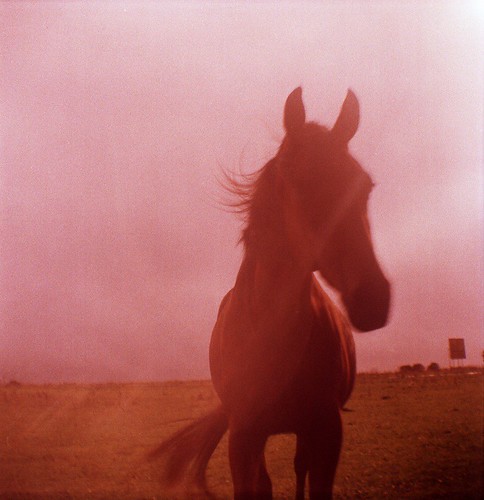Horses on Film
Think of any historical, war or Western film or television programme and you’ll be hard pushed to find one which doesn’t involve horses. Many animal rights campaigners would assert that the use of any animal in a film, programme or any other form of media is cruel and unnecessary and with the recent controversy relating to American “HBO” programme “Luck” starring Dustin Hoffman in which three horses tragically died before filming was shut down with no hope of resurrection, it would appear that they might have a point.
It’s worth wondering then what precautions are taken in production to safeguard the lives and comfort of animals including horses and where Luck got it so horribly wrong
ACTA
In the United Kingdom and on any British backed or financed production, all animal activity is overseen and supervised by the Animal Consultants and Trainers Association (ACTA).
In their mission statement, they state “ACTA provides professional excellence and the highest standards of welfare in the preparation, training and supervision of animals throughout the media and performing arts.”
Their United States counterpart is the American Humane Society and from this, each company of production has their own unique governing body and their own rules.
The role of all or these individual bodies is to ensure that no animals are harmed or distressed during the production and are properly catered for as they work.
The Precise Role of ACTA
As part of their role in the media industry, ACTA have four main objectives. They aim to provide “a professional and comprehensive service” in supplying and training animals for any media including film, television, advertising and so on. They safeguard the welfare of the animals; they promote policies of veterinary care and conduct health and safety assessments and interventions where necessary.
As part of their work, they are involved in pre-production in which they encourage programme and film makers to prepare for the involvement of animals, including budget, time and care, they are also involved with arranging and maintaining insurance, risk assessment as part of health and safety.
A large part of their work involves the provision of a suitably qualified vet on any set. Their role is to certify the health of the animal prior to their work and to supervise all animal activity during filming and production including the equestrian property where the horses are kept during filming. It is their sole responsibility to confirm that the health of the animal is exactly as it was at the beginning and it is on their say-so that any certification from ACTA is allowed to appear in credits as advice to the public who can often be concerned for the health and welfare of animals in film.
Luck
To all intents and purposes, the appeal of A-List actors and directors, high production values and a compelling storyline set around horseracing, the HBO series “Luck” was a hit waiting to happen but tragedy would strike three times before production was shut down permanently in March 2012. The alarm was first raised by PETA who were critical of the production methods used which led to the fatal injuries of two horses. The AHA investigated and claimed it was satisfied with arrangements but the death of a third horse was too much to ignore and after a shut down by the AHA to investigate the tragedy, the network themselves took the unusual step of closing down production themselves claiming that “accidents unfortunately happen and it is impossible to guarantee they won’t in the future."
This is a guest post on behalf of Anna Wright who believes in horse for loan schemes, blogs on equestrian property and the outdoors.
